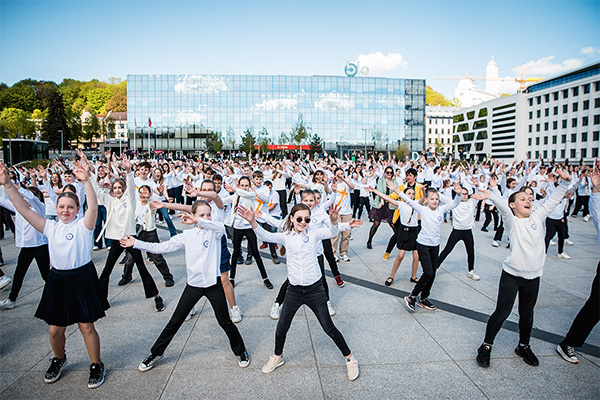Column
ColumnLiterature Become Voice
The public literary reading has poor standing in Japan. To present a reading seems of a piece affected, quite over the top. Prospective listeners, picturing the author upon a stage reading out from her poems or novels, may well find the mere idea all too mortifying. Others might think it all very well for children or illiterates, but dumbfounded as to why functioning adults would need a text read out for them.
In the German-speaking world, however, it is the public reading that is the norm, and not the public lecture. Authors and audiences find greater pleasure, and more of substance, in literary works than in lecture notes.
After arriving in Germany in 1982 and beginning to write and publish my work in German and Japanese in the 1990’s, I found myself asked to give readings in Germany. The bilingual author has certain opportunities with the spoken word, and even in Germany I mix Japanese into my readings. The result is a new sort of Japanese, aural rather than linguistic.
Germany enjoys a developed radio culture and many literary broadcasts. Radio programs include criticism attending to particular works, writer roundtables, interviews, documentaries, readings. Nothing gives so much pleasure as to frolic in a world of images inside your head as you listen to the radio or a literary cassette. And the public reading adds to this pleasure with the communal experience missing from radio. The laughter, emotions, excitement, boredom, impatience that escape physically from the audience fly about the space they share, erupting in chain reactions and even explosions.
Some authors are poor readers. But even these are interesting. The typical actor reading a text will do so with a firm interpretation of what it means. However, an author who re-encounters an older text of her own is often placed off balance. There is the surprise at finding that what flowed from your own hand has at some point taken on a life of its own and all of its own accord now swells with ambiguity. It can be startling to realize that your text could well have another meaning, one not noticed when you wrote it and that you may have written unconsciously, and to share this moment of authorial surprise, this moment when literature coalesces.
Since arriving in Germany and publishing my first book in 1987, I have now given over 500 public readings, primarily in Europe. That this is rather more than German authors of the same generation is partly due to my work finding a ready fit with the themes ? The Multicultural, Women, Migration, Language, Travel, Japan ? taken up by literary festivals. At first it was pressed upon me and I would somehow labor through, but I gradually became aware of what the audience was feeling and came to enjoy this interaction. When I read with a cold, I find afterwards that it’s usually gone away. There is something about a public reading that brings your life force to the fore.
Ms. TAWADA participated to the “The Skies of Europe”, the literature project at Cultural Capital of Europe Graz 2003 in Austria








